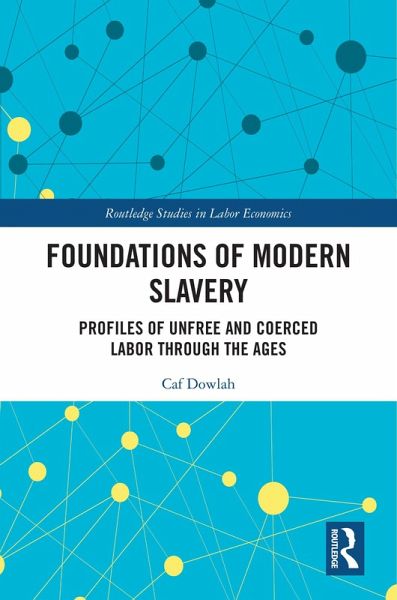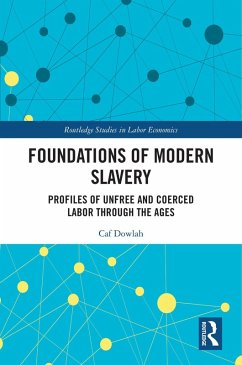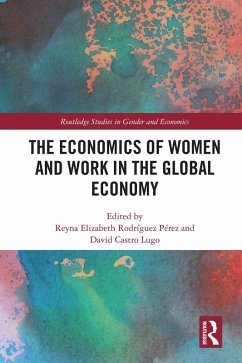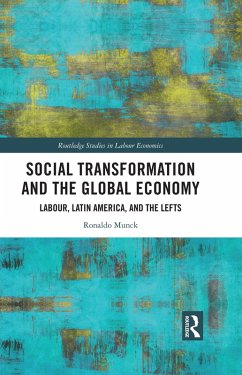
Foundations of Modern Slavery (eBook, ePUB)
Profiles of Unfree and Coerced Labor through the Ages
Versandkostenfrei!
Sofort per Download lieferbar
39,95 €
inkl. MwSt.
Weitere Ausgaben:

PAYBACK Punkte
20 °P sammeln!
This is an academic inquiry into how labor power has been dehumanized and commodified around the world through the ages for capital accumulation and industrialization, and colonial and post-colonial economic transformation. The study explores all major episodes of slaveries beginning from the ancient civilizations to the end of Transatlantic Slave Trade in the eighteenth century; the worlds of serfdoms in the context of Western Europe, Eastern Europe, and Russia; the worlds of feudalisms in the context of Latin America, Japan, China, and India; the worlds of indentured servitudes in the contex...
This is an academic inquiry into how labor power has been dehumanized and commodified around the world through the ages for capital accumulation and industrialization, and colonial and post-colonial economic transformation. The study explores all major episodes of slaveries beginning from the ancient civilizations to the end of Transatlantic Slave Trade in the eighteenth century; the worlds of serfdoms in the context of Western Europe, Eastern Europe, and Russia; the worlds of feudalisms in the context of Latin America, Japan, China, and India; the worlds of indentured servitudes in the context of the Europeans, the Indians, and the Chinese; the worlds of guestworkers in the contexts of the United States and Western Europe; the worlds of migrant labor programs in the context of the Gulf States; and the contemporary world of neoslavery focusing on human trafficking in both developing and developed countries, and forced labor in global value chains.
The book is designed not only for students and academia in labor economics, labor history, and global socio-economic and political transformations, but also for the intelligent and inquiring policy makers, reformers, and general readers across the disciplinary pursuits of Economics, Political Science, History, Sociology, Anthropology, and Law.
The book is designed not only for students and academia in labor economics, labor history, and global socio-economic and political transformations, but also for the intelligent and inquiring policy makers, reformers, and general readers across the disciplinary pursuits of Economics, Political Science, History, Sociology, Anthropology, and Law.
Dieser Download kann aus rechtlichen Gründen nur mit Rechnungsadresse in A, B, BG, CY, CZ, D, DK, EW, E, FIN, F, GR, HR, H, IRL, I, LT, L, LR, M, NL, PL, P, R, S, SLO, SK ausgeliefert werden.













